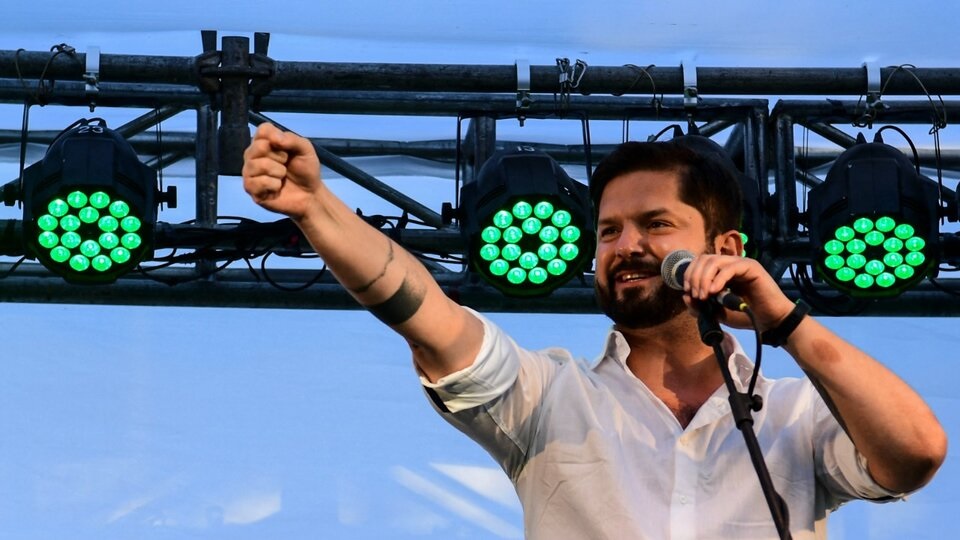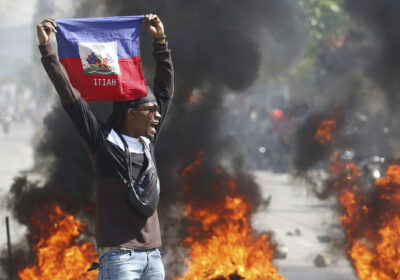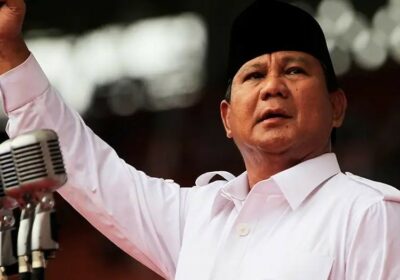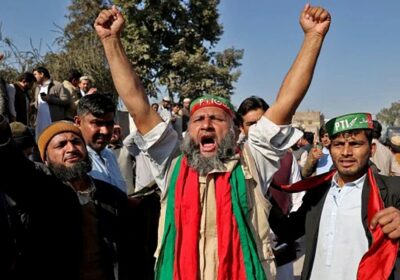GABRIEL BORIC’S CHILE: THE RETURN OF HOPE

Almost 50 years have passed. Chile, symbol of the freedom of my generation, born with the election of Salvador Allende to the presidency, is crushed by a military coup d’état, desired and organised by the United States, which costs the lives of tens of thousands of decent people, ordinary people, families, workers, intellectuals, people taken by chance in the street. A wound that made September 11 a day of death for all humanity, long before the anniversary of the Chilean massacre, when Al Qaeda’s men flew hijacked planes into the heart of the Twin Towers in New York.
Seventeen years of bloody dictatorship are not forgotten in a generation. People’s fear is the same, their suspicion of American multinationals has not changed. But underneath the ashes of this fear there has always been the anger of a proud people, which explodes every time the measure is full – an endless history of protest marches, police and military repression, feverish negotiations, governments born and fallen in the space of a few months, hopes born and immediately dashed due to corruption and the inability of politicians to deal with problems, especially after the terrible earthquake of 2010.
Then, on 19 December 2021, the big surprise: the former student leader Gabriel Boric, 35, head of the left-wing coalition Apruebo Dignidad, which brings together all those political and trade union forces that brought Allende to the presidency 50 years ago, ousted the conservative billionaire Sebastian Piñera from Moneda, defeating the extreme right-wing candidate José Antonio Kast in a runoff: 55 years old, head of the Frente Social Cristiana and who, in the first round, was 2.08% ahead of Boric: the latter won with 55.87% of the vote, against Kast’s 44.13%[1], and will be sworn in on 11 March 2022: he is the youngest president in Chilean history, and wins an election that is even more polarised than usual. Kast is the son of a Nazi militant[2], compared to Trump and Brazilian President Jair Bolsonaro, is a staunch defender of the free market and nostalgic for Augusto Pinochet – yet he elegantly accepts defeat, promising full availability and cooperation[3].
Latin America cannot believe its eyes. The Cuban president Miguel Diaz-Canel Bermudez, the Colombian Ivan Duque, the Peruvian Pedro Castillo, the Bolivian Luis Arce, the Uruguayan Luis Lacalle Pou and the Costa Rican Carlos Alvarado congratulate the new president-elect[4]. Joe Biden also called Boric to congratulate him, and White House spokeswoman Jen Psaki reported “that the two leaders discussed their shared commitment to social justice, democracy, human rights and inclusion” – Biden concluded by applauding Chile’s free elections as a powerful example for the region and the world”[5]. Only the Chilean stock exchange reacted badly, with the share index dropping by 10%, a sign of the markets’ concern about the possible anti-liberal policies of the new tenant of the Moneda[6].
Boric, son of Croatian emigrants, comes from the extreme south of Chile – from Punta Arenas[7] – and even though he studied law, he did not graduate[8]. A fierce activist in the Izquierda Autónoma and in student unionism during the 2011 uprisings, he is the head of the Federation of University Students of Chile[9]. In 2014, still in his twenties, he was elected to the National Congress to represent the vast and sparsely populated southern region of Magallanes[10]. In this role he not only condemns the fact that Pinochet’s bureaucracy was never purged, but also reconnects with the epigones of the fight against the regime: the social democrat Michelle Bachelet[11], but also the Christian Democrats. He has a vision, but excels in dialogue and mediation, and is succeeding in the miracle of rewriting the Constitution in agreement with the right-wingers.
Reconstruction according to Boric

Gabriel Boric during the presentation of his programme[12]
The challenge now is to overcome social inequalities[13]. Chile is still a stronghold of neo-liberalism, with an economy that is only apparently solid, because it is in the hands of a bourgeois aristocracy that, by deliberately preventing the redistribution of wealth, has created unacceptable inequalities and prevented the growth of internal consumption that would have benefited everyone: in Chile, 1% of the population holds 25% of the wealth[14]. The poverty level has fallen from 48% of the population (1988) to around 11% in 2020, but Chile remains one of the most socio-economically unequal countries in the OECD[15].
The poorer classes do not have access to higher levels of education, because during and after the dictatorship governments only supported public schools and nepotism[16]. It is the same in healthcare: there is a public system, but if you want quality you have to pay for it[17]. The impossibility of generalised growth has led to a decade of stagnation, culminating in 2020, also due to the pandemic: a 6% drop in GDP, a million jobs lost, the budget deficit rising to 7.5% of GDP, public debt rising from 28% in 2019 to 33% in 2020, 780,000 more people below the poverty line[18]. Boric countered this with a profound and courageous reform programme[19].
First of all in the direction of environmental sustainability, envisaging huge investments in infrastructures[20], stricter laws on eco-compatibility, environmental education in schools, strong fiscal support for the circular economy, ratification of the Escazú Agreement[21] (which Sebastian Piñera’s government had not signed), the transition to renewable energies with the gradual abandonment of coal, and solving the problems of water availability[22]. A real revolution, capable of a transversal consensus, because the companies like it too: at least until it touches the centres of corruption in defence of the industrial oligarchies – it will be there that we will understand if they will really allow him to change Chile.
Boric no longer wants to delegate to the Americans, so he wants a real programme of regional integration, promising clean and cheap energy, better public infrastructure, a relentless fight against drug trafficking – and above all, as the first president since Allende, he is determined to take foreign policy, which for half a century has been managed by Washington lobbies, into his own hands: The resolution of territorial disputes over the Beagle Channel[23] and border problems with Bolivia and Peru, but also the Antarctic question – and he intends to do so without disadvantageous agreements with China, which is pushing for the exploitation of natural resources[24], and with which Chile has a free trade agreement anyway[25].

The Chilean army on parade, with its uniforms that, unfortunately, arouse painful nightmares in us Europeans[26]
What is needed is a Universal Health System (public) and a Universal Health Fund (USF)[27], with the gradual elimination of Isapres (private health insurance), offset by the offer to Chilean industry of an ambitious emergency housing plan, with the construction of 65,000 houses a year[28], guaranteed access to kindergartens[29] and the strengthening of public education[30]. All this is accompanied by a constitutional revision (already underway) to defend human rights and alternative culture – things that have been prohibited since the Pinochet regime.
Perhaps the most difficult challenge is that of the economy and labour: a new tax system for large companies balanced by a tax on wealth, in order to support the creation of surplus value and not the freezing of wealth[31]; the introduction of a universal basic pension (PBU) for all citizens aged 65 and over[32], the gradual increase of the minimum wage and the reduction of working hours to 40 hours; the encouragement of women’s work with subsidies and training, with the aim of creating at least 500,000 jobs for Chilean women[33]. All this can only be achieved with the cooperation of the extreme right, which has nevertheless almost 50% of the vote, and therefore represents a large part of the country.
The fight against the omnipresent ghosts of dictatorship and liberalism will take up a large part of his work: Chile is a country where the democratic transition has not yet been completed, where the Armed Forces still enjoy extensive privileges and autonomy (until the Constitution is changed), such as the “Ley Reservada del Cobre”, approved in the 1950s, which stipulates that 10% of copper sales must be allocated to the purchase of weapons[34].
In 2015, as much as $858 million was transferred from the state-owned company Corporación Nacional del Cobre (Codelco) to the Armed Forces[35]: the Piñera government repealed the law in 2019, but in fact there remains a legislative vacuum that still leaves ample room for manoeuvre[36], and which Boric intends to change, increasing state control and transparency over the Armed Forces, strengthening civil protection and building an institutional culture that values respect for human rights[37]. All these things make perfect sense – and are so reminiscent of Salvador Allende’s political line…
The man hated by American liberals

The Chicago Boys around 1957, from left to right: Luis Arturo Fuenzalida, Alberto Valdés, Larry Sjaastad, Pedro Jeftanovic and Sergio de Castro[38]
In the 1950s, in the United States, two schools of thought faced each other: the Keynesian school of thought (led by John M. Keynes) and the Chicago neo-liberal school of thought (led by Milton Friedman). Argentina, Brazil and Uruguay chose Keynes: the welfare state, protectionism, price and wage regulation, increased public spending and nationalisation. Until 1973, Chile also joined this trend, which was also promoted by the United Nations Economic Commission for Latin America and the Caribbean (ECLAC) [39].
For Americans, this is seen as the bogeyman of communism – we are in the years of McCarthyism and the Cold War. The US economic, political and military elites decide to invest in a decisive change of course throughout Latin America. The director of this strategy is Senator Albion Patterson, a man of the Rockefeller clan[40], representative of the International Cooperation Administration (ICA) [41] – a government agency which, between 1955 and 1961, provides economic assistance in exchange for military agreements[42] and which, in Chile, sponsors an agreement between the University of Chicago and the Pontificia Universidad Católica de Chile[43], bastion of the conservative Chilean elite.
The agreement, signed in 1955, encourages the exchange of lecturers and postgraduate students: as part of this operation, called ‘Project Chile’, 26 Chilean students studied at the University of Chicago between 1956 and 1964 with the economist Arnold Harberger[44]. Back home, they became known as the ‘Chicago Boys’: supporters of extreme right-wing parties and policies disguised as scientists. This was not enough to change the course of Chilean politics, as in the 1970 elections the people elected Salvador Allende, a convinced Marxist.
Allende was born into a wealthy family in Santiago in 1908; his father, a lawyer and notary, was a member of the Chilean Radical Party. He embraced politics during his high school years and, thanks to his mentor-friend Juan Demarchi[45], became interested in anarchist theorists, then Marxism, and was in the front line in the fight against the dictatorship of Carlos Ibáñez del Campo[46]. His political commitment continued even after studying medicine, and in 1933 he was among the first militants in the newly formed Socialist Party of Chile[47]. At the age of 28, he already had a seat in the Chamber of Deputies and became Minister of Health and Social Policies in 1938, holding the post until 1942. In 1945 he was elected to the Senate and in 1952 he ran for President of the Republic with the support of the Socialist and Communist Parties, coming last[48].
He tried again in 1958, but was defeated by the conservative candidate[49]. In the presidential elections of 1964 he lost to Eduardo Frei Montalva, an exponent of the Christian Democratic Party, sponsored by the United States government, which brought him the votes of the right[50]. Allende ran again in 1970, supported by a left-wing coalition called Unidad Popular, which included the Socialist Party, the Communist Party, the Radical Left Party and dissident left-wing Christians[51]. He won the first round with 36.63% of the votes[52] and, although he did not have an absolute majority, thanks to an agreement with the Christian Democrats, he was elected President[53]. The agreement with the DC angered the CIA. The United States, which had tried to direct the electoral campaign with millions of dollars[54], did not accept the defeat: the American Secretary of State Henry Kissinger declared: “I do not see why we should allow a country to become communist because of the irresponsibility of its own people”[55].
Empanadas y vino tinto

Salvador Allende, the man of the ’empanadas y vino tinto’ revolution[56]
Allende proclaimed the ‘Chilean way to socialism’: ‘the revolution of empanadas and red wine’, to underline its popular character. The government nationalises the copper mines, hitherto controlled by the Americans, initiates a reform for the redistribution of agricultural land, then nationalises the banks and insurance companies. It gives an enormous acceleration to education and the promotion of culture: it creates the publishing house “Quimantú”[57] , which printed 250 titles and sold more than 11 million books in less than two years[58]. He introduced divorce, cancelled state subsidies to public schools and extended maternity leave. All these things frighten a large part of the Chilean bourgeoisie, landowners and entrepreneurs, and make him the sworn enemy of the United States[59].
The lobby supported by Kissinger obtains approval for the financing of more than seven million dollars to those in Chile who oppose Allende – an enormous sum which, in part, will be used to finance the mercenary troops engaged in the extermination of opponents after the coup d’état of 11 September 1973[60]. Even the Vatican, through Cardinal Benelli, decided to support and finance a possible coup d’état[61]. A strategy that was demonstrated in 1999, after the arrest of Augusto Pinochet in London, during his trial for the crimes of genocide, terrorism and torture[62], as President Bill Clinton removed the secret from volumes of documents from Allende’s time[63]: accounts of conversations, notes, letters, official reports, incontrovertible proof of the guilt of President Richard Nixon and his National Security Adviser Henry Kissinger[64]. The latter, up to that day, had repeated a thousand times, lying, that the United States was uninvolved in the Chilean coup d’état[65].
After the elections were lost, work began immediately on the overthrow of the Chilean government[66], the Chicago Boys prepared a plan, called “The Brick”, which would be the basis of the economic policy of Pinochet’s military junta[67]. On 15 September 1970, a meeting of the National Security Council was held at the White House with the Chilean question at its centre. Kissinger delayed the meeting by 24 hours in order to meet Nixon and convince him to use an iron fist[68]. It is there that the plans to annihilate Allende take shape: Secretary of State William Rogers opposes the hard line, but Secretary of Defence Melvin Laird, speaking of Allende, declares: “We must do everything possible to wound and destroy him”[69]. Nixon confirms: “If there is a way to oust Allende, it is better to do it”[70]. The CIA is authorized to promote an enormous denigration campaign[71], but Nixon warns: if this is not enough, “the extreme option will be to overthrow Allende”[72].
The American president is not alone: according to notes and reports cited by the NSA[73] and desegregated in September 2021, in December 1970, Australia also wants to stop Allende: the Australian Foreign Minister, William McMahon, authorises the Australian Secret Intelligence Service (ASIS) to open a secret cell in the Chilean capital, whose agents will arrive in mid-1971[74]. They leave in the spring of 1973, because the Australian government is afraid that the world will discover the intrigue and that Australians will not appreciate seeing their name next to that of CIA agents[75]. Brazil is also against Allende: the U.S. ambassador meets the Brazilian ambassador to agree on moves against the new Chilean government, and the head of the Brasilia regime, General Emílio Garrastazu Medici, authorises support for some rebel Chilean officers and the terrorist organisation Patria y Libertad[76].

General Augusto Pinochet shakes hands with US Secretary of State Henry Kissinger[77]
Allende continued on his way, and then the economic boycott took place. Multilateral bank loans to Chile are blocked and credits and loans for US exports are cancelled; American companies are asked to leave Chile, the price of copper, which is essential for Chilean exports, is forced to fall[78]. But in Santiago, they went ahead[79]. Nixon authorises the CIA to organise a coup d’état. And the Washington spies alert the military commanders and the
Carabineros loyal to them, and these declare themselves ready to use weapons[80].
On 22 October, General René Schneider Chereau, commander of the armed forces, was shot in his car by a commando composed of five individuals belonging to a coup group led by General Camilo Valenzuela[81]; he died on 25 October 1970 from his serious injuries[82]. Today we know for sure that Kissinger and Nixon were behind it[83]: the commando was sent by the CIA to unleash the anger of the army[84]. But Allende went ahead, and on the 24th of October, Congress confirmed him as president[85].
September 11th

11 September 1973: Chilean soldiers observe the bombing of the Palacio de La Moneda[86]
On the morning of 29 June 1973, the Moneda Palace is surrounded by six tanks, eighty soldiers and ten troop vehicles, in a first attempt to overthrow the government[87]. The operation fails thanks to the intervention of a loyalist part of the military leadership, but the manoeuvre is a ‘dress rehearsal’[88]. The political situation is extremely tense: on the 22nd of August, the Christian Democrats and the National Party accuse the government of violating the constitution, the Chamber of Deputies approves – the magistracy is activated: the Supreme Court accuses the government of acting against the constitution[89]. This is the decisive signal.
At 7 a.m. on September 11th, the Chilean Navy occupies the port of Valparaíso[90]. Admiral Raúl Montero Cornejo, loyal to President Allende, is imprisoned and José Toribio Merino Castro, one of the protagonists and creators of the coup d’état, takes his place[91]. The air force and army tanks proceed with the so-called “Operation Silence”: bombing the headquarters and antennas of all radio and TV stations[92]. The only one to survive is the Chilean Communist Party’s Radio Magallanes, from which, shortly afterwards, Allende speaks to the nation for the last time.
President Allende and Defence Minister Orlando Letelier have no way of knowing exactly what is happening[93]. They are unable to communicate with Augusto Pinochet, the general whom Allende had appointed as head of presidential security, unaware that it was he who had coordinated the coup[94]. At 8:40 a.m., Lieutenant-Colonel Roberto Guillard announces the revolt, stating that due to the “very serious social and moral crisis that the country is going through” and the “inability of the government to control the chaos”, the Armed Forces and the Police Corps are re-establishing order, inviting the President to resign[95]. Allende refuses to negotiate and gives his last heartbreaking speech to the nation – Radio Magallanes broadcasts the farewell of a man who knows he must die[96].
Around noon the rebels bomb the Presidential Palace, around 2pm the assault ends. Inside the Moneda two lifeless bodies: the journalist Augusto Olivares and President Allende. There is a mystery surrounding the death of the President: it is thought that he was assassinated, but only in 2011, with the exhumation of his body and the autopsy, is it known that he committed suicide with an AK-47 machine gun given to him by Fidel Castro[97]. At 14:35, the Armed Forces announce that “they have decided to assume power, supported by the evidence of the feelings of the great national majority”, and the same evening, the President of the Supreme Court, Enrique Urrutia Manzamo, proclaims his “deepest satisfaction” for the birth of a new government”[98].
Within 48 hours, the judges ratified Decree-Law No. 1 of the Military Junta, composed of three articles[99]: the first declares that the commanders constitute themselves into a Governing Council to assume the supreme command of the nation; the second appoints General Pinochet as President of the Council; the third guarantees the “full effectiveness of the powers of the Judiciary (…) to the extent that the current situation of the country allows it”[100].

Berlin, November 1973: Inti-Illimani, exiles in Europe and symbol of the victims of the Chilean dictatorship, in concert[101]
The military junta dissolved the National Assembly, destroyed the electoral registers, outlawed the parties united in the Unidad Popular, and passed a series of liberticidal laws: on the day of the coup, more than 5,600 people were arrested, including more than 600 students, locked up in the Chilean Stadium and the National Stadium, which were transformed into prison camps. Tens of thousands of people were tortured, many women were raped, thousands of people disappeared into thin air. Years later, the Valech Commission of Inquiry spoke of 40,000 victims of human rights violations between 1973 and 1990, 3216 citizens disappeared or were killed, 38,254 people were imprisoned without charge and tortured for months or years[102]. More than 200,000 Chileans have fled[103]: to Mexico, Venezuela[104] and Europe[105].
Washington smiles, the “communist danger” has been averted. What matters is that the dictator chose a liberalist economic policy, inspired by Milton Friedman, with whom Pinochet also had a personal friendship[106]: the Chicago school reduced the role of the State, privatised many companies, and proceeded with a total opening towards the foreign market. The state’s accounts benefited, but only to an exclusive circle of oligarchs. Despite the fact that Pinochet was defeated in a plebiscite in 1988, and that after him there were seven democratic governments, the damage created then has not been repaired, and has become gangrenous[107].
And now Boric. A man who, in 1973, had not yet been born. A man who has understood that the central issue is the recovery of the internal dynamism of Chilean society and economy, and who is ready to explain its usefulness even to the old trombones, to the nostalgics of Nixon, to those who consider themselves aristocracy and hate the thousands of new Chileans – children of immigrants, like Boric himself. With the hope that the United States has changed, that the awareness of the Chilean people and army has grown, that the sun of a new renaissance can shine on Santiago, which, if the new president’s ideas become reality, could be a great lesson for all the countries of the West.
ESP008
[1] https://www.bbc.com/mundo/noticias-america-latina-59722345
[2] https://www.repubblica.it/esteri/2021/12/10/news/cile_presidenziali_padre_candidato_estrema_destra_kast_nazista-329590715/
[3] https://www.ex-ante.cl/el-cambio-de-tono-de-boric-y-kast-y-las-senales-conciliadoras-tras-una-polarizada-eleccion/
[4] https://edition.cnn.com/2021/12/19/americas/chile-election-gabriel-boric-intl-nk/index.html
[5] https://www.reuters.com/world/americas/chiles-election-powerful-example-world-biden-tells-president-elect-boric-2021-12-30/
[6] https://www.reuters.com/markets/currencies/chiles-peso-mining-stocks-tumble-after-leftist-boric-wins-election-2021-12-20/ ; https://www.wsj.com/articles/chiles-election-of-leftist-as-president-shakes-nations-markets-11640029959
[7] https://www.emol.com/noticias/Nacional/2021/12/21/1041693/origen-croata-de-boric.html
[8] https://chile.as.com/chile/2021/11/20/actualidad/1637425708_251009.html
[9] https://www.buscabiografias.com/biografia/verDetalle/11541/Gabriel%20Boric
[10] https://www.buscabiografias.com/biografia/verDetalle/11541/Gabriel%20Boric
[11] https://www.efe.com/efe/america/politica/la-expresidenta-bachelet-apoya-a-boric-no-da-lo-mismo-por-quien-se-vota/20000035-4697923
[12] https://www.pauta.cl/politica/las-cuatro-reformas-clave-del-programa-gobierno-de-gabriel-boric
[13] https://economiafacil.cl/2021/09/09/distribucion-de-la-riqueza-en-chile-cepal/#:~:text=En%202017%2C%20el%2050%25%20de,%2C5%25%20de%20la%20riqueza.
[14] https://economiafacil.cl/2021/09/09/distribucion-de-la-riqueza-en-chile-cepal/#:~:text=En%202017%2C%20el%2050%25%20de,%2C5%25%20de%20la%20riqueza.
[15] https://data.oecd.org/inequality/income-inequality.htm
[16] https://www.ciperchile.cl/2020/09/27/el-derecho-a-la-educacion-en-la-nueva-constitucion-chilena/
[17] https://iris.paho.org/handle/10665.2/51916
[18] https://www.worldbank.org/en/country/chile/overview#1
[19] https://presidenciales2021.servel.cl/wp-content/uploads/2021/09/PROGRAMA-GABRIEL-BORIC.pdf
[20] https://radio.uchile.cl/2021/06/18/gabriel-boric-presenta-programa-de-gobierno-esta-candidatura-va-en-serio-queremos-ganar-las-primarias-y-la-presidencial/
[21] https://www.cepal.org/es/acuerdodeescazu
[22] https://boricpresidente.cl/propuestas/crisis-climatica/
[23] https://www.jstor.org/stable/42739021
[24] https://ceeep.mil.pe/2021/12/18/los-desafios-que-enfrentara-el-proximo-gobierno-de-chile-segunda-parte/
[25] https://www.reuters.com/article/us-chile-china-idUSKCN1N65YD
[26] https://www.ansa.it/sito/photogallery/primopiano/2016/09/20/militari-in-parata-per-anniversario-indipendenza-in-cile_d4e9f7b7-7e4b-496d-92a1-6b8ed887db88.html
[27] https://www.elmostrador.cl/dia/2021/11/16/programa-de-salud-de-boric-creacion-de-fondo-universal-de-salud-y-reducir-los-tiempos-de-espera-para-acceder-a-especialistas-y-cirugias/
[28] https://www.cronista.com/internacionales/chile-tiene-nuevo-presidente-gabriel-borici-el-plan-economico-de-su-gobierno-de-izquierda/
[29] https://radio.uchile.cl/2021/06/18/gabriel-boric-presenta-programa-de-gobierno-esta-candidatura-va-en-serio-queremos-ganar-las-primarias-y-la-presidencial/
[30] https://www.sobretiza.com.ar/2021/12/20/fortalecer-la-educacion-publica-uno-de-los-ejes-de-boric/
[31] https://fontaineycia.cl/programa-tributario-de-gabriel-boric/
[32] https://boricpresidente.cl/propuestas/pensiones/
[33] https://www.ex-ante.cl/los-10-puntos-clave-del-programa-de-gobierno-que-boric-pretende-implementar-y-los-factores-que-lo-condicionan/
[34] https://www.defensa.cl/temas-de-contenido/ley-reservada-del-cobre/
[35] https://nuso.org/articulo/fuerzas-armadas-y-democracia-en-chile/
[36] https://www.elmostrador.cl/noticias/pais/2019/07/24/se-deroga-la-ley-reservada-del-cobre-congreso-despacha-a-ley-el-nuevo-sistema-de-financiamiento-para-las-ffaa/#:~:text=La%20ley%20crea%20un%20Fondo,la%20fuerza%2C%20cuando%20por%20las
[37] https://portaluchile.uchile.cl/noticias/181124/las-propuestas-presidenciales-para-defensa-y-fuerzas-armadas-
[38] https://slate.com/business/2016/01/in-chicago-boys-the-story-of-chilean-economists-who-studied-in-america-and-then-remade-their-country.html
[39] https://repositorio.cepal.org/bitstream/handle/11362/30088/S4900192_en.pdf
[40] https://www.sourcewatch.org/index.php/Albion_Patterson
[41] https://www.jstor.org/stable/20669215
[42] https://www.archives.gov/research/guide-fed-records/groups/469.html
[44] https://promarket.org/2021/09/12/chicago-boys-chile-friedman-neoliberalism/
[45] https://www.salvador-allende.cl/
[46] https://www.ciperchile.cl/2008/08/01/introduccion-a-allende-en-persona/
[47] https://www.salvador-allende.cl/
[48] https://www.peoplesworld.org/article/lessons-learned-50-years-after-allendes-popular-unity-government-in-chile/
[49] https://en-academic.com/dic.nsf/enwiki/964225
[50] https://www.peoplesworld.org/article/lessons-learned-50-years-after-allendes-popular-unity-government-in-chile/
[51] https://www.bcn.cl/historiapolitica/partidos_politicos/wiki/Unidad_Popular
[52] https://wsimag.com/es/economia-y-politica/63514-salvador-allende-y-la-via-chilena-al-socialismo
[53] https://www.bcn.cl/historiapolitica/resenas_biograficas/wiki/Salvador_Allende_Gossens
[54] https://www.nytimes.com/1975/01/19/archives/the-secret-committee-called-40-at-least-in-theory-it-controls-the.html
[55] http://www.derechos.org/nizkor/chile/doc/encubierta.html#C.%20LAS%20ELECCIONES%20DE%201970
[56] https://www.ilsuperuovo.it/allende-storia-di-un-golpe-democratico/
[57] http://www.memoriachilena.gob.cl/602/w3-article-3362.html
[58] https://www.soldelsaber.cl/sobre-quimantu/
[59] https://cancilleria.gob.ar/es/institucional/patrimonio/archivo-historico-de-cancilleria/la-chilena-al-socialismo ; https://bdigital.uncu.edu.ar/objetos_digitales/1019/pinedocuyo17.pdf
[60] http://www.derechos.org/nizkor/chile/doc/encubierta.html#C.%20LAS%20ELECCIONES%20DE%201970
[61] https://www.publico.es/internacional/vaticano-colaboro-eeuu-apoyando-golpe.html
[62] https://www.derechoshumanos.net/lesahumanidad/pinochet/pinochet.htm
[63]https://nsarchive.gwu.edu/briefing-book/chile/2020-09-15/extreme-option-overthrow-allende
[64] https://nsarchive.gwu.edu/project/chile-documentation-project
[65] https://elpais.com/internacional/2020-11-11/richard-nixon-si-hay-una-forma-de-desbancar-a-allende-mejor-hazlo.html ; https://www.aa.com.tr/es/pol%C3%ADtica/-qu%C3%A9-dicen-los-archivos-desclasificados-de-estados-unidos-50-a%C3%B1os-despu%C3%A9s-del-triunfo-de-allende-en-chile-/1966012
[66] http://www.derechos.org/nizkor/chile/doc/encubierta.html#C.%20LAS%20ELECCIONES%20DE%201970
[67] https://promarket.org/2021/09/12/chicago-boys-chile-friedman-neoliberalism/
[68] https://www.ciperchile.cl/2020/11/04/derribarlo-el-ataque-a-chile-ordenado-por-nixon-y-kissinger-que-muestran-los-registros-de-la-casa-blanca/
[69] https://www.elespectador.com/mundo/america/el-espectador-le-explica-las-cuestionadas-estrategias-de-ee-uu-para-tumbar-a-salvador-allende-article/
[70] https://elpais.com/internacional/2020-11-11/richard-nixon-si-hay-una-forma-de-desbancar-a-allende-mejor-hazlo.html
[71] http://www.derechos.org/nizkor/chile/doc/encubierta.html#C.%20LAS%20ELECCIONES%20DE%201970
[72] https://www.elcomercio.com/actualidad/mundo/opcion-extrema-allende-chile-eeuu.html
[73] https://nsarchive.gwu.edu/briefing-book/chile/2021-09-10/australian-spies-aided-and-abetted-cia-chile?eType=EmailBlastContent&eId=adfbac80-045f-4ce0-8657-b2ddd9be07c3
[74] https://www.france24.com/es/minuto-a-minuto/20210910-australia-apoy%C3%B3-a-la-cia-en-el-chile-de-allende-indican-registros-de-inteligencia
[75] https://nsarchive.gwu.edu/document/24682-document-7-asis-telegram-director-general-robertsons-report-santiago-station
[76] https://nsarchive.gwu.edu/briefing-book/chile/2021-04-01/brazil-aided-abetted-overthrow-salvador-allende-chile
[77] https://es.wikipedia.org/wiki/Augusto_Pinochet
[78] https://elpais.com/internacional/2020-11-11/richard-nixon-si-hay-una-forma-de-desbancar-a-allende-mejor-hazlo.html
[79] http://www.derechos.org/nizkor/chile/doc/encubierta.html#C.%20LAS%20ELECCIONES%20DE%201970
[80] “El Gobierno de Salvador Allende” – Luis Corvalàn L. – Lom Ediciones 2003 – page 116, https://obtienearchivo.bcn.cl/obtienearchivo?id=documentos/10221.1/14867/1/El_gobierno_de_Salvador_Allende.pdf
[81] https://es-academic.com/dic.nsf/eswiki/1001273
[82] https://es-academic.com/dic.nsf/eswiki/1001273
[83] http://archivoschile.org/2010/07/nuevas-evidencias-sobre-asesinato-del-general-schneider/
[84] https://es-academic.com/dic.nsf/eswiki/1001273
[85] https://interferencia.cl/articulos/el-congreso-pleno-ratifica-salvador-allende-como-presidente-de-chile
[86] https://www.elmundo.es/cultura/literatura/2019/09/11/5d77c78321efa09a6e8b466a.html
[87] https://www.laizquierdadiario.com/El-Tanquetazo-la-sublevacion-militar-que-anticipo-el-derrocamiento-de-Salvador-Allende
[88] https://www.laizquierdadiario.com/El-Tanquetazo-la-sublevacion-militar-que-anticipo-el-derrocamiento-de-Salvador-Allende
[89] https://elsiglo.cl/2020/09/11/1109-el-acuerdo-de-la-gran-traicion/
[90] http://www.derechos.org/nizkor/chile/libros/blanco/cap2.html
[91] https://memoriaviva.com/nuevaweb/criminales/criminales-m/merino-castro-jose-toribio/
[92] https://www.hemisphericinstitute.org/journal/3.1/esp/es31_pg_oquendo_villar.html
[93] https://www.ilpost.it/2013/09/11/l11-settembre-1973-in-cile/
[94] https://www.ilpost.it/2013/09/11/l11-settembre-1973-in-cile/ ; https://www.bbc.com/mundo/noticias-america-latina-45458820
[95] https://www.emol.com/noticias/Nacional/2018/09/11/920234/Cronologia-Asi-fue-minuto-a–minuto-el-dia-en-que-se-quebro-la-democracia-hace-45-anos.html
[96] https://www.txalaparta.eus/es/noticias/ultimo-discurso-antes-de-suicidarse-del-presidente-chileno-salvador-allende
[97] https://www.bbc.com/mundo/noticias/2011/07/110719_allende_suicidio_ao ; https://www.libertaddigital.com/mundo/2011-07-20/salvador-allende-se-suicido-con-un-fusil-regalado-por-fidel-castro-1276430154/
[98] Antecedentes Historico-Juridicos: años 1972-1973 – Editorial Andres Bello -1980. Page 23, http://bibliotecadigital.dipres.gob.cl/bitstream/handle/11626/16489/Antecedentes%20Historicos%20Juridicos.pdf?sequence=1&isAllowed=y
[99] https://www.bcn.cl/leychile/navegar?idNorma=237897
[100] http://www.derechos.org/nizkor/chile/libros/lnegro/cap4.html
[101] https://www.pinterest.cl/pin/396246467208505204/
[102] https://www.amnesty.ch/it/news/2013/cili/fatti-e-cifre
[103] https://elpais.com/diario/1983/03/31/internacional/417909620_850215.html
[104] https://www.redalyc.org/journal/4964/496461294003/html/
[105] https://www.jstor.org/stable/25676230
[106] https://anticapitalista.org/2013/09/13/il-cile-tra-milton-friedman-pinochet-e-il-ritorno-della-democrazia/#prettyPhoto
[107] https://www.bbc.com/mundo/noticias-america-latina-54734477




Leave a Reply